Europe Archive
Free Newsletter

As working summits go, Italian Prime Minister Giorgia Meloni’s meeting with Libya’s interim prime minister in Tripoli last week seemed like a routine visit. But her meeting a few hours later in Benghazi with the leader of the rival government there underscored the dangers lurking below the surface of the two sides’ calm relations.
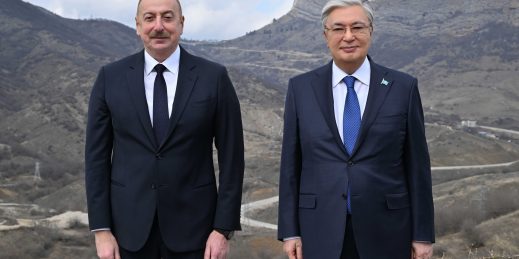
An international effort to create a rail and maritime transport corridor to connect Asia to Europe while avoiding Russian territory has gained momentum in the wake of Russia’s invasion of Ukraine. The success or failure of the trade route, known as the Middle Corridor, depends on solid relations between Azerbaijan and Kazakhstan.
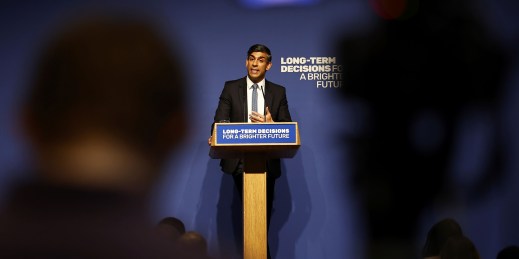
Last week’s local elections mark the firmest confirmation yet that the ruling Conservative Party is on track to be decimated in U.K. general elections later this year. Many observers blame the party’s decline on its failure to boost public services and economic growth. But it is also the product of deeper structural factors.
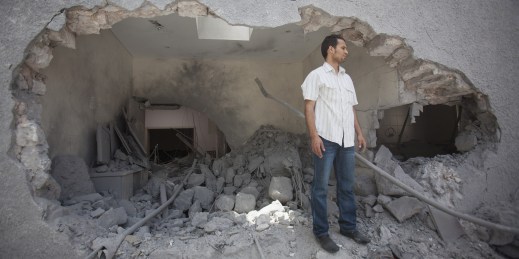
NATO’s intervention in Kosovo just over 25 years ago was based on ideas like “Responsibility to Protect,” which would come to serve as a guiding principle of U.S. foreign policy for more than a decade. But on a road paved with good intentions, “Responsibility to Protect” was always bound to do harm as well as good.
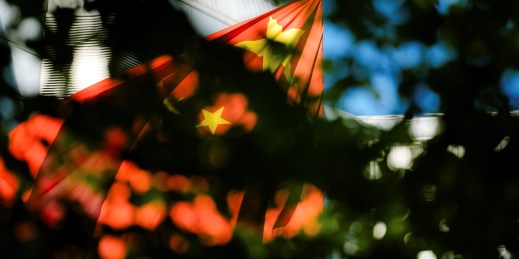
Chinese President Xi Jinping’s trip to Europe is coming at a rather awkward time. European police and intelligence agencies have recently uncovered an astonishing number of alleged Chinese spies in a tidal wave of counterespionage activity in recent weeks, underscoring the sheer breadth of Beijing’s intelligence operations.
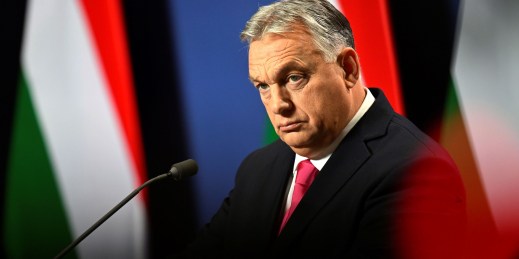
For almost 15 years, Hungarian Prime Minister Viktor Orban has been a fixture of EU politics, while leading a populist onslaught against liberalism at home. But even as Orban attracts fawning admiration from other anti-liberal populists in Europe and the United States, cracks are beginning to show in his own power base in Hungary.
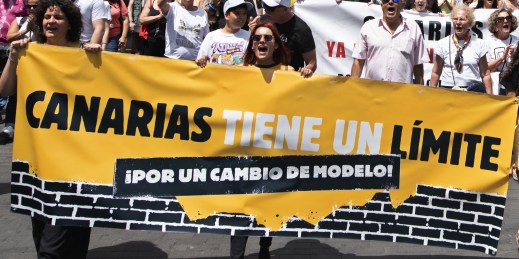
While large economies like Germany, France and the U.K. have been mired in stagnant growth and even recession over the past few years, Portugal, Italy, Greece and Spain have managed to flip the EU’s economic script. But questions remain as to whether the region’s economic momentum can be maintained going forward.








